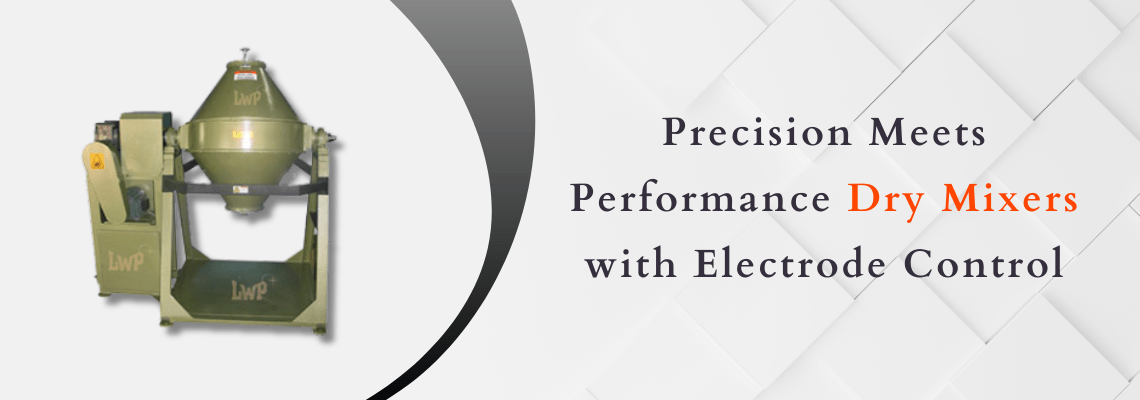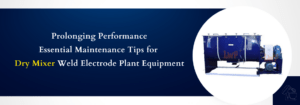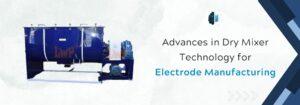Introduction
Are you tired of using traditional dry mixers that do not deliver precision and efficiency? The good news is that technology has allowed for the development of dry mixers with electrode control that enables users to achieve both precision and performance in mixing different types of powders, granules, and other dry materials.
In this article, we will explore the importance of precision and performance in dry mixing and how electrode control addresses these issues. We will also go over the common types of electrode control and their benefits. By the end of this article, you will have a better understanding of how dry mixers with electrode control can revolutionize and optimize your manufacturing process.
Why Precision and Performance Matter in Dry Mixing
Precision and performance are critical factors in dry mixing because they impact the quality and consistency of the final product. Many industries, such as pharmaceuticals, food and beverage, and chemical Industry, rely heavily on precise and efficient dry mixing processes to ensure that the final product meets the desired specifications.
A traditional dry mixer can cause inconsistencies in the mixing process, resulting in uneven distribution of ingredients. This can lead to poor quality product, waste of materials, and increased costs. With precision and performance at the forefront of dry mixing, dry mixers with electrode control can alleviate these issues.
Types of Electrode Control
There are two main types of electrode control in dry mixers: capacitance and resistance. Capacitance electrode control uses changes in capacitance to monitor the material being mixed. This type of electrode control is ideal for materials with low dielectric constants.
Resistance electrode control, on the other hand, utilizes changes in resistance to monitor the material being mixed. This type of electrode control is ideal for materials with higher dielectric constants. Both types of electrode control offer precise monitoring and control, improving the quality and consistency of the final product.
Benefits of Electrode Control in Dry Mixing
Precision control
Dry mixers with electrode control provide precision control over the mixing process. This helps to ensure that the final product meets the desired specifications, leading to better quality products, less waste, and cost savings.
Batch consistency
Electrode control in dry mixing ensures that each batch has consistent mixing, texture, and density. This helps to ensure that the end product is of a consistent quality, which is vital in industries such as pharmaceuticals, food, and chemical manufacturing.
Time savings
By using an electrode-controlled dry mixer, you can save time on manual monitoring and adjusting of the mixing process. The mixer will automatically adjust as needed, leading to increased efficiency and productivity.

Increased safety
Electrode control reduces safety risks by automatically stopping the mixing process if there are any issues, such as power surges or clogs in the mixer. This helps to prevent accidents and injuries in the workplace.
Easy to use
Electrode control dry mixers are easy to use and maintain, requiring minimal training and maintenance. This makes them ideal for companies looking to improve their dry mixing processes without investing in extensive training and equipment.
conclusion
In Conclusion, Dry mixers with electrode control offer precision, performance, and efficiency in the dry mixing process. With precise monitoring and control, electrode-controlled dry mixers provide consistent, high-quality mixing for various materials, ultimately improving the quality of the final product. In addition, electrode-controlled dry mixers provide time savings, increased safety, and ease-of-use, making them ideal for different industries.
By considering the benefits that electrode control offers in dry mixing, you can make informed decisions on the type of dry mixer that will best suit your manufacturing needs.






